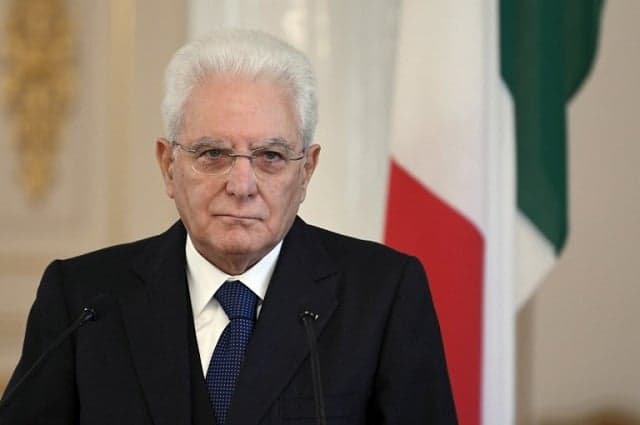The date for next year's Italian general election has been set: reports

Two days after Prime Minister Paolo Gentiloni's one-year anniversary of taking the country's top job, Italy's political parties have reached an agreement on when next year's election will be held, according to Italian media reports.
Italians are expected to go to the polls on March 4th next year.
The date has not yet been formally confirmed, but according to Repubblica, Italian President Sergio Mattarella -- the only person who can call an election -- and Italy's main political parties have agreed on the date for Italy's next general election.
The vote has to be held before May 20th, 2018.
The news comes just a day after Paolo Gentiloni marked one year as Prime Minister, an office he took after Matteo Renzi resigned following a humiliating defeat in a national referendum. The failure of Renzi's proposed constitutional reforms also meant Italy was left without a workable electoral law, as the upper and lower houses of parliament had two different electoral systems.
After months of debate, a new election law named 'Rosatellum' was finally passed in late October, despite fierce opposition from the Five Star Movement (M5S), which describes itself as 'anti-establishment'. One crucial feature of the new law is that it favours parties which build alliances, something the M5S has ruled out doing.
Speaking to La Stampa about his year in the top job, Gentiloni described it as a "roller coaster" and said that he would leave his successor "a more stable Italy", which he said "has overcome its most serious crisis".
It's far from clear who that successor is likely to be. Under the Rosatellum law, there will only be a clear-cut winner if one party or bloc receives over 40 percent of the vote. Recent opinion polls show a centre-right coalition ahead, followed by the M5S and Gentiloni's Democratic Party, but all of them several points away from the 40 percent bar.
READ ALSO: Italy's political system: Ten key things to know
Comments
See Also
Italians are expected to go to the polls on March 4th next year.
The date has not yet been formally confirmed, but according to Repubblica, Italian President Sergio Mattarella -- the only person who can call an election -- and Italy's main political parties have agreed on the date for Italy's next general election.
The vote has to be held before May 20th, 2018.
The news comes just a day after Paolo Gentiloni marked one year as Prime Minister, an office he took after Matteo Renzi resigned following a humiliating defeat in a national referendum. The failure of Renzi's proposed constitutional reforms also meant Italy was left without a workable electoral law, as the upper and lower houses of parliament had two different electoral systems.
After months of debate, a new election law named 'Rosatellum' was finally passed in late October, despite fierce opposition from the Five Star Movement (M5S), which describes itself as 'anti-establishment'. One crucial feature of the new law is that it favours parties which build alliances, something the M5S has ruled out doing.
Speaking to La Stampa about his year in the top job, Gentiloni described it as a "roller coaster" and said that he would leave his successor "a more stable Italy", which he said "has overcome its most serious crisis".
It's far from clear who that successor is likely to be. Under the Rosatellum law, there will only be a clear-cut winner if one party or bloc receives over 40 percent of the vote. Recent opinion polls show a centre-right coalition ahead, followed by the M5S and Gentiloni's Democratic Party, but all of them several points away from the 40 percent bar.
READ ALSO: Italy's political system: Ten key things to know
Join the conversation in our comments section below. Share your own views and experience and if you have a question or suggestion for our journalists then email us at [email protected].
Please keep comments civil, constructive and on topic – and make sure to read our terms of use before getting involved.
Please log in here to leave a comment.